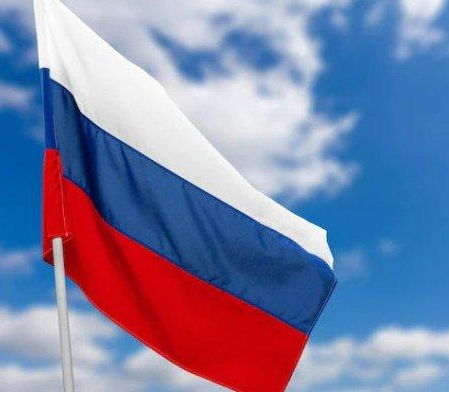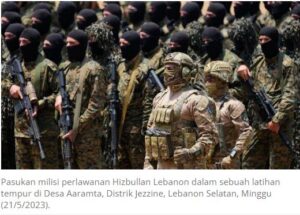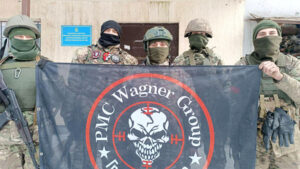
STRATEGIC ASSESSMENT. Russia’s response to the Israel-Hamas war has not yet had many meaningful effects on the conflict or on international policy responses to the fighting. That said, Hamas credited Russian President Vladimir Putin and “the supportive Russian position of the Palestinian cause” after the group released a dual national Russian-Israeli man over the weekend, which was not a part of the official deal agreed to by Hamas and Israel. Even if Moscow had sought a significant role, Russia’s ability to exert influence on the conflict has undoubtedly been reduced by its focus on its own war effort against Ukraine, which has caused Russia to divert significant resources to the home front from operations abroad, including from the nearly decade-long mission to support the regime of Syrian President Bashar Al Assad. Since 2015, Russian forces have been allied and working closely in Syria with Assad’s key regional supporters, particularly Iran and Iran’s main ally, Lebanese Hezbollah. As Russia re-oriented itself to the war against Ukraine, it has become even more reliant on Iran to continue the Assad-support mission. Hezbollah – which is trying to tie down significant numbers of Israeli troops with a steady stream of cross-border attacks on northern Israel – supplied a significant number of fighters to Syria at the height of the civil war there during 2015-2018. Iran, Hezbollah, and other regional members of Iran’s “axis of resistance” have all, to varying degrees, taken modest actions against Israel and the United States to demonstrate support for Hamas in its battle against the Israel Defense Forces (IDF).

The Ukraine war has left Putin relatively isolated on the world stage, rendering Russia far less influential in the Middle East, although Moscow has been able to maintain relationships centered around oil and energy reserves. Putin has thus sought to use the Israel-Hamas war and U.S. support for Israel’s war goals to undermine American backing of Ukraine and to resurrect his international standing. Three days after the October 7 Hamas attack on Israel triggered the crisis, Putin told Iraq’s prime minister “that this is a clear example of the failed policy in the Middle East of the United States, which tried to monopolize the [Israeli-Palestinian] settlement process.” Putin has emphasized the number of Palestinian casualties caused by Israeli operations as part of an effort to rally support in the Global South for overturning a world order that he claims is dominated by the United States and its European allies, which has been a core principle that motivated his invasion of Ukraine. Russian officials have also accused Washington of upholding a double standard by sharply criticizing Russia’s targeting of civilian infrastructure in Ukraine while downplaying Tel Aviv’s causing vast civilian casualties in Gaza. By the IDF’s own estimates, no more than two thousand of the more than 13 thousand Palestinians killed in Gaza so far have been Hamas fighters. More practically, Russia’s leadership has looked for signs that U.S. financial and military support for Israel’s war against Hamas might be causing the United States to reduce aid or arms provisions to Ukraine. U.S. congressional efforts to reduce funding for Ukraine support – in part to account for increased financial support for Israel – have perhaps provided President Putin with hope that the flow of Western help to Kyiv might slow.
Yet, Russia’s support for the Palestinian position in the war threatens to jeopardize Moscow’s relations with Israel, which the Kremlin has consistently sought to maintain throughout the war with Ukraine. Notably, Jews of Russian ethnicity and ancestry make up a major segment of Israel’s population and have wielded significant political influence in the country. The Israeli-Russian relationship has helped Moscow play a significant role in Middle Eastern affairs throughout the years, and Russian foreign minister Sergey Lavrov is set to host his counterparts from Arab League member states as well as the Organization of Islamic Cooperation to discuss the war in Gaza this week. However, Russia’s movement toward the Palestinian position in the aftermath of the October 7 attack has not only led to widespread dismissal of any mediating role for Moscow, but has also injured relations with the Israelis. Moscow’s reception of a Hamas delegation in late October prompted Israel to summon Russia’s ambassador, Anatoly Viktorov, for sending “a message legitimizing terrorism.” Alexander Ben Zvi, Israel’s ambassador to Russia, has been summoned for talks with the Russian foreign ministry at least twice, and the two countries’ UN envoys have traded harsh words after Moscow’s representative questioned the scope of Israel’s right to defend itself. As a concrete sign of worsening Israeli-Russian relations, Mikhail Bogdanov, one of Russia’s deputy foreign ministers, suggested that Israel has stopped routinely warning Moscow of air strikes against Syria, a key Russian ally, in advance. Israel frequently strikes Iran-controlled targets in Syria, even amid its war against Hamas. Some Israeli politicians have threatened precisely the action that Moscow has consistently sought to prevent: the provision of additional advanced Israeli technology to Ukraine. Israel has perhaps the most advanced missile and rocket defense technology in the world, and providing its most advanced systems, such as David’s Sling, to Kyiv could potentially be decisive in blunting the missile and armed drones that Russia has used against Ukraine. To date, Israel has provided only some sophisticated early warning and anti-drone technology to help Ukraine defend itself against Russia.

Its strategic military relationship with Iran offers Moscow additional motivation to take a pro-Palestinian stance. Russia has not directly, to date, facilitated or specifically applauded any of the anti-Israel or anti-U.S. actions undertaken by Iran’s axis of resistance protege movements. However, Russia’s stance on the crisis dovetails with its efforts to expand the flow of Iranian-made arms, which Moscow is running short of in its nearly two years of war against Kyiv. Iran has become reliant on a steady supply of Iran-made armed drones, which it deploys against Ukrainian civilian infrastructure. Russia appears to want to procure ballistic missiles from Tehran to compensate for reported dwindling domestic supplies. U.S. National Security Council spokesperson John Kirby said last week that the United States is concerned that Iran is preparing to provide Russia with ballistic missiles, which Iran showcased to Russian Minister of Defense Sergei Shoigu during his visit to Tehran in September. Kirby added that U.S. officials “will closely monitor for whether Wagner provides military equipment to Hezbollah or Iran,” and that the United States is “prepared to use our counterterrorism sanctions authorities against Russian individuals or entities making these destabilizing transfers.” On November 21, U.S. officials declassified intelligence that the Russian private military company Wagner Group – which has been more closely integrated into the Russian command structure since the killing of its founder, Yevgeny Prigozhin, in August – has been preparing to provide an air defense capability to either Hezbollah or Iran at the direction of the Russian government. The U.S. announcement appeared to confirm an earlier CNN report that the Wagner Group had agreed to deliver a surface-to-air SA-22 missile system from Syria to Lebanese Hezbollah. The delivery agreement appeared to represent a direct effort by Moscow to help Tehran and its key ally deter U.S. and/or Israeli strikes, after both the United States and Israel made threats against Iran and Hezbollah should the latter fully join the war in support of Hamas (TSC).





